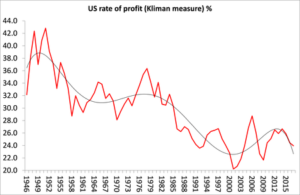
A vision of how a socialist, participatory economy could function.
Issue posts not assigned an issue section

A call for a moratorium on AI development based on the precautionary principle, and a discussion of the difficulty of achieving it in a capitalist society.

Martin Oppenheimer discusses the corporatist character of historical fascism and the importance of a left alternative vision to counter fascist threats today.

Nicole Fabricant discusses the rise of the petrochemical industry in Appalachia and its devastating ecological, economic, and health effects.

Robinson and Rangel offer an overarching view of the revolts across the world today, and analyze opportunities and dangers for the left.

It is widely accepted that the accelerating rivalry between the great powers—the United States, China, the European Union, Russia, and Japan—is a key feature of world politics and will remain so for the foreseeable future. This makes it urgent for . . .

La Botz analyzes the pseudo anti-imperialist character of campism and calls for genuine internationalism of workers against imperialism.

Layan Kayed, who was imprisoned by Israel for her activism, discusses organizing by students and women.

The backdrop for the last two DSA conventions was resistance to Donald Trump and the anticipation of a second Sanders campaign. In 2021, that is gone: Trump is no longer president. Sanders lost. In the Biden era, what is DSA?

The case of Brazil under Bolsonaro helps to illustrate how authoritarian governments in the Global South see ecological concerns as impediments to capitalist growth.

Camus and Orwell both understood that the justification for state violence depends on describing it in such a way as to not convey too specific an image of the actual event.

An analysis of debates among labor leftists about how a commitment to socialism “from below” should inform union activity.

More than ever, the organized popular classes in Belarus must take the initiative in favor of political and social change in order to prevent the frustration of this genuinely popular movement by forces opposed to their interests, whether pro-Russian or pro-Western.

Much has transpired since Donald Trump’s announcement last December that the United States was to withdraw its 2,000 troops from Syria. While the “rapid” withdrawal initially suggested by Trump’s tweet has not come about, discussion among U.S. rulers ultimately points . . .

One of the most important issues of our time is the intensifying rivalry between the imperialist Great Powers: the United States, China, the EU, Russia, and Japan. Diplomatic rows, sanctions, trade wars, military tensions, and, ultimately, major wars now loom . . .

Why are we still teaching reading the wrong way?” Why are “more than 60 percent of American fourth-graders not proficient readers?” asked Emily Hanford, an American Public Media correspondent, in the New York Times (October 26, 2018) and on public . . .

In the face of faltering confidence in the prospects of a two-state solution, Palestinians find themselves once again in a state of limbo, bound by a peace process that has not only failed to award them independence, but has only . . .

The law of the tendency for the rate of profit to decline has been the focus of an immense and on-going debate since the publication of Vol.III of Capital in 1894. In what follows, . . .